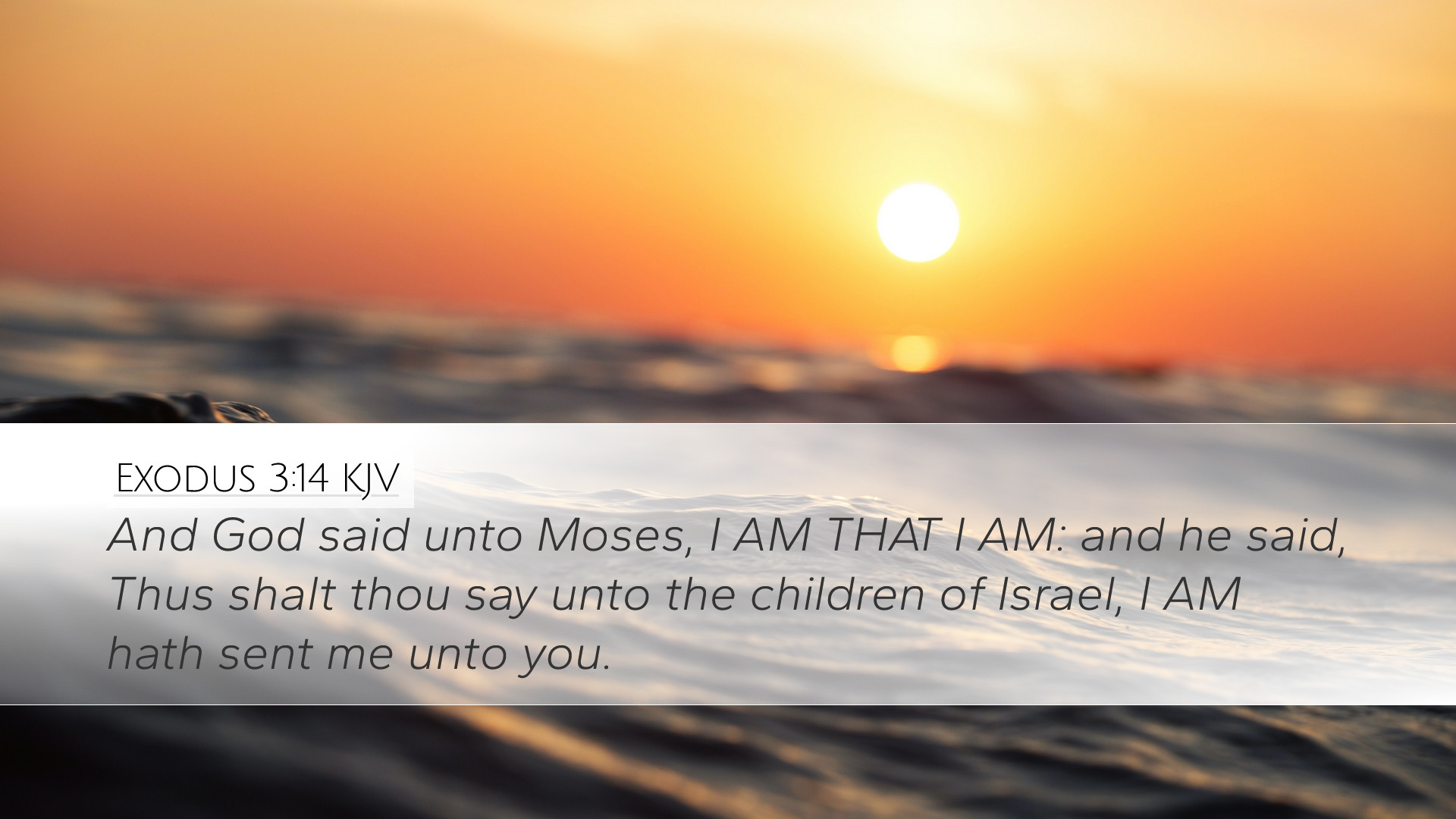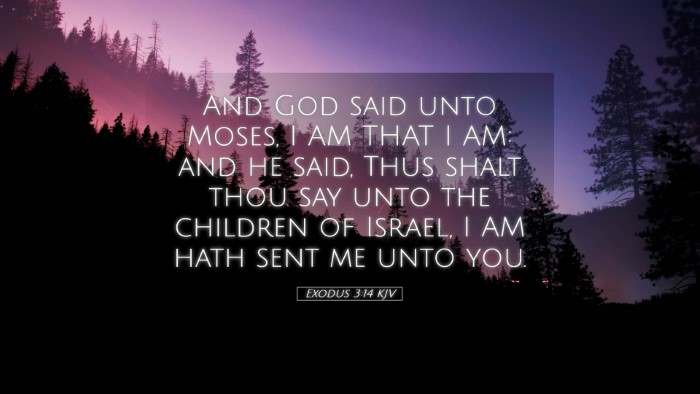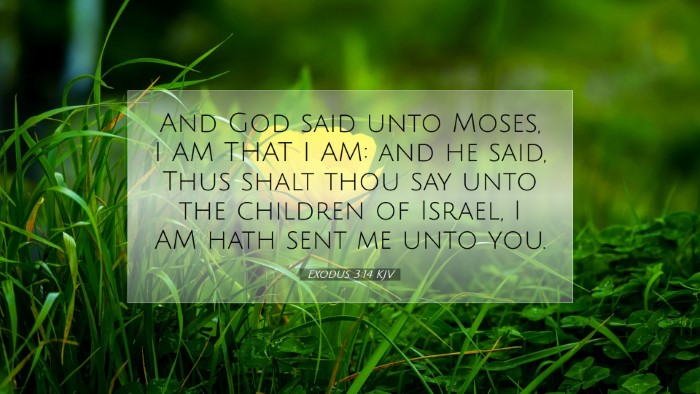Exodus 3:14 - Commentary Summary
Exodus 3:14 presents one of the most profound revelations of God's nature in the Bible: "And God said unto Moses, I AM THAT I AM: and he said, Thus shalt thou say unto the children of Israel, I AM hath sent me unto you." This declaration by God not only identifies Himself but also carries deep theological implications regarding His nature, essence, and covenant relationship with humanity. The following commentary consolidates insights from public domain authors Matthew Henry, Albert Barnes, and Adam Clarke.
Divine Self-Identification
Matthew Henry emphasizes that God's name "I AM" signifies His self-existence and eternal presence. Unlike created beings that are contingent and defined by their boundaries and beginnings, God is uncreated and independent. Henry notes:
“He is that Being that is, and was, and will be; to all eternity the same; immutable and not subject to the changes that affect all created beings.”
Understanding "I AM"
- Albert Barnes's reflection on this phrase highlights its connotations of simplicity and sufficiency. He notes that God encompasses all that is necessary for existence:
“I AM conveys the idea of being—God is the essence of existence itself, implying that He is all-sufficient and that He provides everything for His people.”
- Adam Clarke connects this name with God's role as a faithful sustainer. He believes that God's proclamation encompasses His ability to be whatever His people need Him to be:
“The various applications of this name demonstrate God's willingness to fulfill every need of His creation, whether it be as provider, healer, or savior.”
The Covenantal Aspect
Henry further discusses the significance of this revelation within the context of covenant. He explains that God is not merely a distant deity, but one who actively engages with His people. The declaration of "I AM" serves as a reminder of His promises:
“He who is always present and willing to engage in a relationship with His people assures them of His commitment to fulfill His covenant.”
The Theological Implications
Barnes expounds on the theological implications of God's self-description. The concept of being eternal and self-sustaining fundamentally alters the viewpoint on other gods or deities:
“It portrays the stark contrast between the living God and the idols that are made with hands, which have no life or power. Such a revelation underscores the monotheistic nature of Israel's faith.”
Application for the People of Israel
Clarke emphasizes how this revelation serves as a means of reassurance for the Israelites, who were in bondage in Egypt:
“In their time of oppression, knowing that 'I AM' has sent Moses to deliver them instills hope, affirming that they can rely on the unchanging nature of God.”
Broader Reflections on God’s Name
- Henry relates the concept of "I AM" to the broader attributes of God:
“The Lord's name encapsulates His attributes—His omnipotence, omniscience, and perfect holiness—all of which provide a foundation for the faith of believers.”
- Barnes expands on the implications of "I AM" for Christian belief, particularly in light of New Testament revelations, where Jesus explicitly identifies Himself with this name:
“For believers today, this name resonates profoundly in Christ's declarations of His own identity, showing the continuity of God's character and His purposes throughout redemptive history.”
Conclusion
The declaration of God in Exodus 3:14 is a cornerstone of understanding His nature and relationship with humanity. It serves not only to define His essence but also as an assurance to His people of His omnipresence and faithfulness. Through the insights of Matthew Henry, Albert Barnes, and Adam Clarke, we glean essential truths that encourage deeper reflection and trust in the unchanging God who identifies Himself as "I AM."


